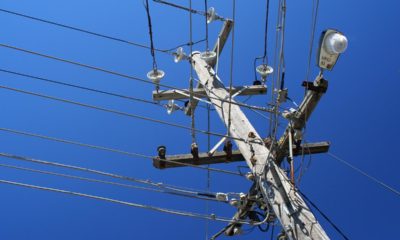- Five Firms Bid for Afam, Yola Power Companies
Five firms have submitted financial and technical bids to purchase 51 per cent stake in the Afam Power Plc – an electricity generation company – and Yola Electricity Distribution Company.
Head, Public Communications at the Bureau of Public Enterprises, Amina Othman, disclosed this in a statement made available to our correspondent in Abuja on Monday.
Othman said that the five companies beat the Friday deadline set for the submission of financial and technical proposals.
She said, “A total of five bids were received by the BPE on Friday, March 15, 2019 – being the deadline for the submission of technical and financial proposals for the acquisition of the Yola Electricity Distribution Company and Afam Electricity Generation Company (Afam Power Plc & Afam Three Fast Power Limited) by prospective core-investors.
“Two firms – Quest Electricity Nigeria Limited and Sandstream Nigeria – submitted proposals to acquire the Yola Disco while DiamondStripes Consortium, Unicorn Power Generation Consortium and Transcorp Power, sought to acquire the Afam Genco.
“Sandstream submission was, however, found to be non-responsive as it failed to include a bank guarantee in line with the requirements in the Requests for Proposal.
Accordingly, the representative of the firm took the bid back.”
Speaking on the development, the Director-General of BPE, Mr Alex Okoh, assured the bidders that the evaluation of their bids would be subjected to the highest level of integrity culminating into the financial bids opening of the successful bidders.
Okoh said the Evaluation Committee would meet immediately to discuss and finalise the scoring criteria before commencing the evaluation process which was expected to end on Thursday.
A total of 19 firms had indicated interest to acquire the Afam Power Company and the Yola Distribution Company put up for sale by the Federal Government at the close of the submission of bids for the Expression of Interest at 1 pm on Tuesday, September 26, 2018.
The request for expression of interest in the two companies was published by the BPE in national newspapers on August 16, 2018, and after evaluation of the EOIs, 11 firms qualified for the next stage but only the five were successful.
The Yola Distribution Company had been successfully privatised and handed over to the core investor in 2013. However, a force majeure was declared in 2015 by the core investor citing insecurity in the North-East region of the country. Following this, the company was duly repossessed by the Federal Government.
The transaction for Afam Power Generation Company, on the other hand, fell through due to the delay in signing the Gas Supply Agreement and the Gas Transportation Agreement.
In 2017, the National Council on Privatisation gave approval for a fresh transaction to privatise the two power companies, Othman said.
It is expected that the successful bidders will be responsible for operating the generation and distribution companies, making the necessary investments to improve the generation and distribution networks and customer service in line with the objectives of the Federal Government of Nigeria set out in the National Electric Power Policy, the BPE spokesperson added.

 Forex3 weeks ago
Forex3 weeks ago


 Naira2 weeks ago
Naira2 weeks ago
 Billionaire Watch2 weeks ago
Billionaire Watch2 weeks ago




 Naira2 weeks ago
Naira2 weeks ago




 Naira2 weeks ago
Naira2 weeks ago




 Naira1 week ago
Naira1 week ago




 Naira3 weeks ago
Naira3 weeks ago




 Naira4 weeks ago
Naira4 weeks ago


















